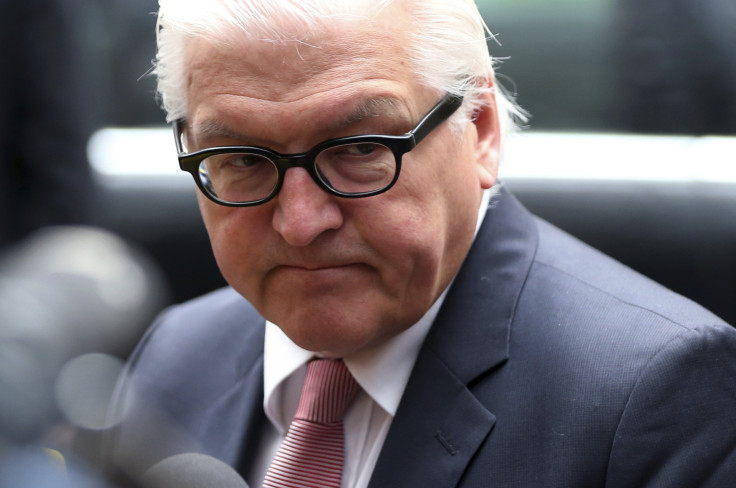Canada Extends Sanctions List Against Russia While German Foreign Minister Visits Kiev To Find A Solution To Ukraine Crisis

Germany's foreign minister, Frank-Walter Steinmeier, will arrive in Kiev Tuesday for a fresh attempt at a diplomatic solution to the Ukraine crisis, even as Canada joined the European Union, or EU, in extending a list of sanctions against Russian and Ukrainian officials accused of destabilizing the region.
Steinmeier’s visit, which has been sponsored by Vienna-based Organisation for Security and Co-operation, or OSCE, will include a discussion with Russian and Ukrainian officials, and follows claims by pro-Russian separatists that more than 90 percent of people in the Donetsk and Luhansk regions voted to secede from Ukraine in a referendum, which has been called illegal by the interim administration in Kiev and by the EU. According to news reports, separatists have threatened war against Ukraine’s army while Russia's foreign ministry called to legitimize the results of Sunday's referendum through talks.
“We have to be prepared for what to do if someone prevents the elections on May 25. If that is going to happen ... then we have to think about further sanctions," Steinmeier said, according to Reuters, adding that the referendum must not be taken seriously.
Pro-Russian separatists have asked Russia to “absorb” the Donetsk region into its territory, although Moscow has not yet endorsed such a move.
"The people of Donetsk have always been part of the Russian world. For us, the history of Russia is our history," Denis Pushilin, a leader of the "People's Republic of Donetsk" and one of the people named by Canada in its list of sanctions, said, according to Reuters, adding: "Based on the will of the people and on the restoration of historic justice, we ask the Russian Federation to consider the absorption of the Donetsk People's Republic into the Russian Federation.”
The EU's latest round of sanctions includes for the first time companies, along with individuals, taking the total number of people affected to more than 60, though an OSCE statement Monday said that Russian President Vladimir Putin was supportive of the organization's roadmap to de-escalate tensions in Ukraine, BBC reported.
Canadian Prime Minister Stephen Harper said Monday that his country too has extended its list of sanctions by implementing travel bans and asset freezes, and that the international community would continue to exert pressure on Russia until it takes measures to defuse tensions in the region. The list of people on Canada's list, according to ITAR-TASS, is here.
© Copyright IBTimes 2024. All rights reserved.












